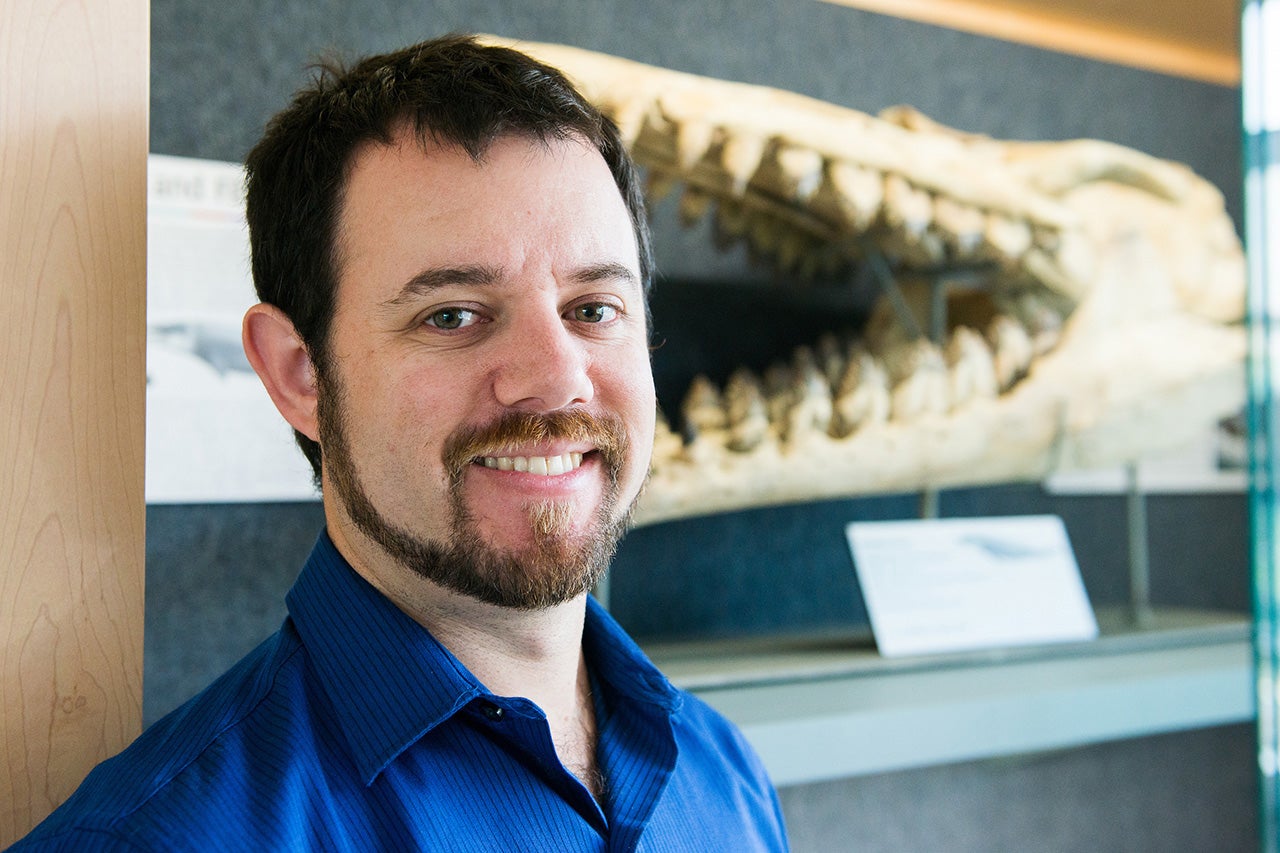Ten-year anniversaries traditionally call for gifts of tin or aluminum. For Mace Brown, the 10th anniversary of the Mace Brown Museum of Natural History at the College of Charleston is being marked by a multi-year gift to support a new research fellowship to take the museum’s research and community outreach to the next level.
Brown’s gift may not have been intended as an anniversary present, but his investment into the museum, which is named in his honor, is intentional nonetheless. After informally funding research activities for the past six years, Brown established the Mace Brown Museum Research Fellowship to provide a steadier stream of resources to support a summer faculty stipend, research activities and travel to professional conferences.
The recipient of the inaugural Mace Brown Museum Research Fellowship is Robert Boessenecker, a research associate and adjunct instructor in the College’s Department of Geology and Environmental Geosciences. Boessenecker is no stranger to Mace Brown or the museum; he has known of Brown and his collection since before first visiting the College as a doctoral student in 2012. Boessenecker has been involved in myriad museum-based research projects since joining the College in the fall of 2015.
RELATED: Geology Professor, Student Make Mega Discovery
In his role as a research fellow, Boessenecker’s primary responsibilities include the study of the evolution of whales and dolphins by researching the fossils within the museum, preparing multiple manuscripts on fossil cetaceans for peer review, improving the collections and promoting the museum through social media outreach and public lectures. He also serves as a mentor to aspiring undergraduate paleontology students in the School of Sciences and Mathematics.
The opportunities the collection at the museum offer is one of the main reasons Boessenecker chose to come to the College after earning his doctorate.
“The collection we have here is one of the most important resources available for learning about whale and dolphin evolution,” he says. “Mace is responsible for bringing a number of amazing fossils into the public trust and the scientific value of this collection is unparalleled. He is an altruistic collector in that he didn’t amass a unique and significant collection just to sell them. He always wanted to give them to a place where scientists and non-scientists can learn from them and grow their interest in our ancient marine life forms.”
Read the full story on Momentum, CofC’s digital philanthropy publication.




